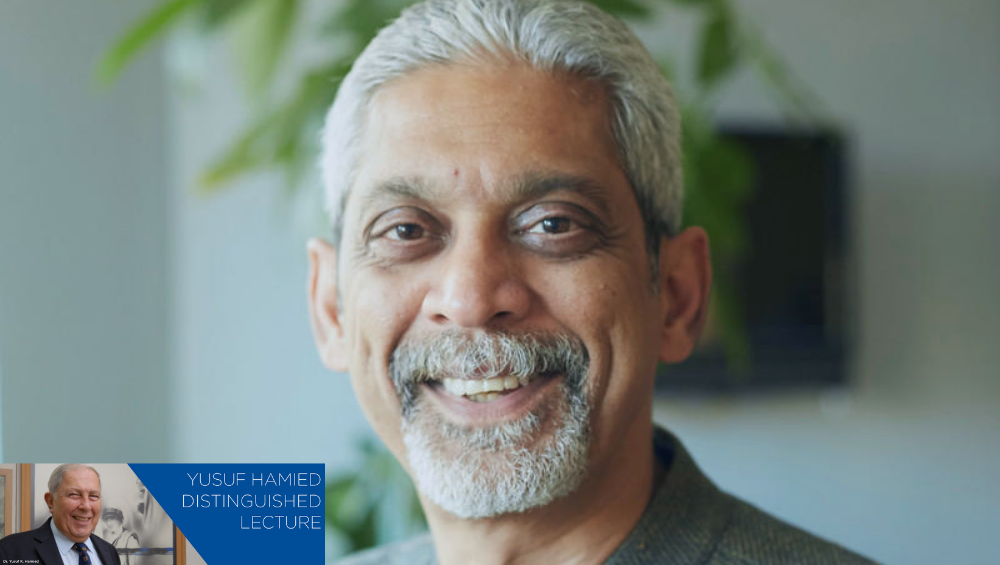Healthcare with Compassion
A moral compass, epitomized by caring for the sick with compassion, is one of the essential building blocks of an effective healthcare system, remarked Vikram Patel, Pershing Square Professor of Global Health at Harvard Medical School, as he presented the Third Annual Yusuf Hamied Distinguished Lecture to a global audience on October 15, 2021. The online lecture was part of the illustrious Yusuf Hamied Fellowship, a joint initiative between the Mailman School of Public Health and Columbia Global Centers | Mumbai.
India ranks high among the countries most affected by health-related mortality rates. Professor Patel highlighted three major limitations in India’s healthcare system — poor quality of care, high out-of-pocket expenses, and lack of accountability. Sharing evidence from different studies, he pointed out that a large population dies in India not because of lack of access to care but due to the poor quality of care. This harsh reality was greatly amplified during the second surge of Covid-19 in India in the summer of 2021, when the uncoordinated use of ventilation and medication led to another micro-epidemic — that of mucormycosis (black fungus), he reminded the audience.
High out-of-pocket expenditure and over-reliance on direct payments act as barriers in accessing appropriate and affordable healthcare. Addressing this “medical-industrial complex,” Professor Patel stressed the need for developing a flexible financing mechanism to ensure universal health coverage. He shed light on the association between the two sides of the health accountability equation — healthcare provider and patient — asserting that the overall accountability in India’s healthcare system is discouraging and requires immediate attention. He suggested a five-step strategy: empowerment of primary care and nonphysician providers; empowerment of front-line workers; training of all health workers in ‘soft skills’; reforming institutional cultures; and empowering communities with information and developing mechanisms to hold healthcare services accountable.
To illustrate the implementation of these strategies, Professor Patel applied them to his own experience in treating mental health cases in India, remarking that evidence-based psychosocial interventions can be introduced as a last mile preventative and treatment strategy. For this, he suggested that community health workers and frontline workers such as ASHAs have to be trained and empowered; this can be done through the¸creation of opportunities for them to run primary care and community health services, defining a career path for nurses and community health workers, and preparing a locally grounded workforce that is more sensitive to the needs of patients and communities. He also emphasized the importance of training healthcare providers to listen to a patient’s problems, provide comprehensive information on the status of health, and not be judgemental about a patient’s problems.
Presenting examples of differences in quality of care between private and public sectors, Professor Patel noted that a facility’s cultural norms often play an important role in shaping the behaviour of healthcare providers it houses. Thus, reforming institutional cultures is important in providing effective care to patients. Similarly, policies and programs play a crucial role in changing the culture. He gave the example of the Mental Healthcare Act and its provisions that focus on the civil and political rights of those suffering.
The lecture concluded by advocating for a multipronged strategy to be put in place to redress shortcomings in compassion and empathy in the Indian and global healthcare systems. As Professor Patel noted, “The healthcare system needs to focus on what matters to the patient rather than what is the matter with the patient.”
